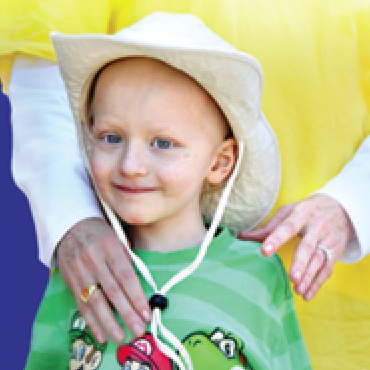 One of the worst things a parent can hear is that their child is being diagnosed with sickle cell disease. Sickle cell is a lifelong genetic disorder and puts a person's health and life at serious risk. There has been little progress in terms of treatment or a cure aside from pain management until just recently. There may now be hope for a cure to sickle cell disease and it is at the forefront of modern healthcare technology.
One of the worst things a parent can hear is that their child is being diagnosed with sickle cell disease. Sickle cell is a lifelong genetic disorder and puts a person's health and life at serious risk. There has been little progress in terms of treatment or a cure aside from pain management until just recently. There may now be hope for a cure to sickle cell disease and it is at the forefront of modern healthcare technology.
Sickle cell disease (SCD) has always been one of the most prominent blood disorders that The Valerie Fund has helped families deal with. It is a blood disorder that creates misshapen blood cells in the body and can create extremely volatile pain crises as well as lead to a host of other health issues. To learn about what SCD is and how it can affect someone's life, you can click here.
Up to now, a person with SCD could only do their best to manage a pain crisis when it hit and adjust their lifestyle to try and minimize risks. There was not much hope for things to change until a team of doctors and scientists began using CRISPR to unlock new doorways into the human genome.

CRISPR is cutting-edge technology that can replace pieces of DNA in the human body that are not working correctly and insert new ones that do what they are supposed to. This technology has opened up a world of new treatment avenues for those who suffer from genetic disorders such as SCD. If CRISPR is able to successfully teach the body the correct way to operate then disorders such as SCD may be eradicated.
Since CRISPR is such a new and powerful technology it must go through rounds and rounds of testing before it can be made available for the general public. Luckily for those afflicted with SCD, these tests are already well underway and the outlook is very promising.
NPR recently reported a story called "1st Patients To Get CRISPR Gene-Editing Treatment Continue To Thrive" and it follows a SCD patient named Victoria. She was a part of the trial group to receive the CRISPR treatment for her SCD and the progress is nothing short of a technological miracle for her. She was able to fly on a plane for the first time in her life without fear of the higher altitudes triggering a pain crisis. "It's amazing," Victoria says. "It's better than I could have imagined. I feel like I can do what I want now."
This medical breakthrough also has a very special connection to The Valerie Fund. First and foremost, this will improve the lives of many of our TVF kids. An extra special bonus is one of the board members of The Valerie Fund, Krista McKerracher, was a team member at CRISPR Therapeutics during this milestone achievement in medicine. She led the hemoglobinopathy research and development activities at CRISPR Therapeutics. Krista has always been willing to walk the walk when it comes to helping our families via The Valerie Fund but she went the extra mile in being a part of hopefully solving this problem for good.

CRISPR technology could also be used for more than SCD as it is being explored for other blood disorders such as beta-thalassemia and even some types of cancer. "It is opening the door for us to show that this therapy can not only be used in sickle cell and thalassemia but potentially can be used in other disorders," says Dr. Haydar Frangoul at the Sarah Cannon Research Institute in Nashville. Frangoul is Victoria's doctor and is helping run the study.
This is an exciting time in medicine with new discoveries being made every day. The Valerie Fund will be sure to keep you updated on breakthroughs such as these.
If you would like to read the full NPR article you can click here and if you would like to read the New England Journal of Medicine where these findings were first published you can click here.











